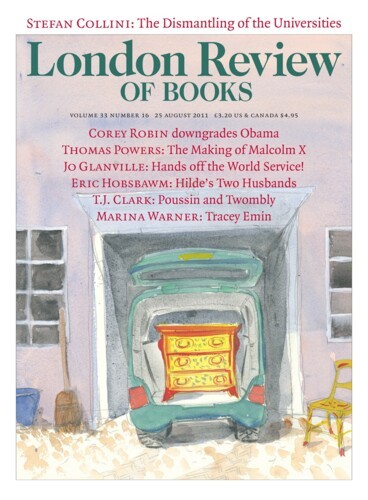‘Auntie Mabel doesn’t give a toss about Serbia’: The World Service
Jo Glanville, 25 August 2011
In October last year, after discussions that took place over just nine days, the BBC agreed to take the funding of the World Service off the hands of the government from 2014. At the same time, as part of the Comprehensive Spending Review, the Foreign Office announced a 16 per cent cut – £46 million – in the World Service budget.



